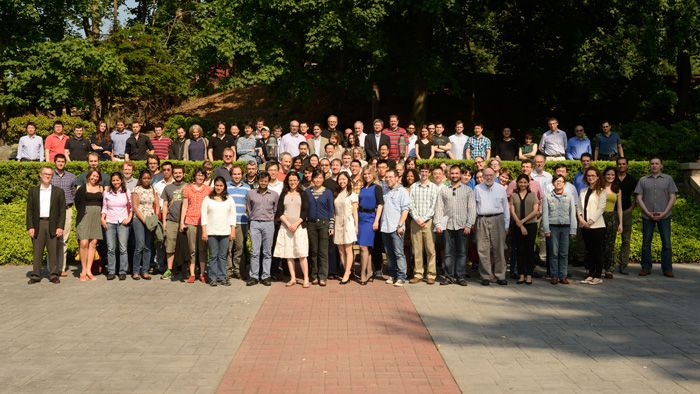
Attendees at the June 2013 Columbia University Department of Systems Biology retreat.
Effective July 1, 2013, the Columbia Initiative in Systems Biology is now the Columbia University Department of Systems Biology. Approved by a vote of the University Trustees, this step recognizes the growth in systems biology research and education that has taken place at Columbia, and formally establishes this emerging discipline as a major area for research at the university.
As Andrea Califano, chair of the new department, explained, "This achievement testifies to the dedicated community that has been gathering at Columbia over the past decade around the field of systems biology. We have witnessed the emergence of a compelling scientific agenda that combines innovative experimental and quantitative methods to address important biological and biomedical questions in ways that were unimaginable just a few years ago. It is very exciting to see Columbia take this step because systems biology is paving the way toward new, more rational approaches in basic and translational research."